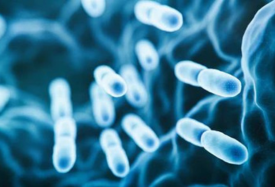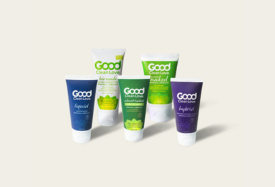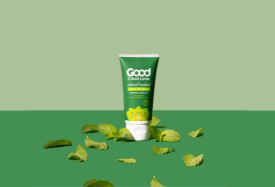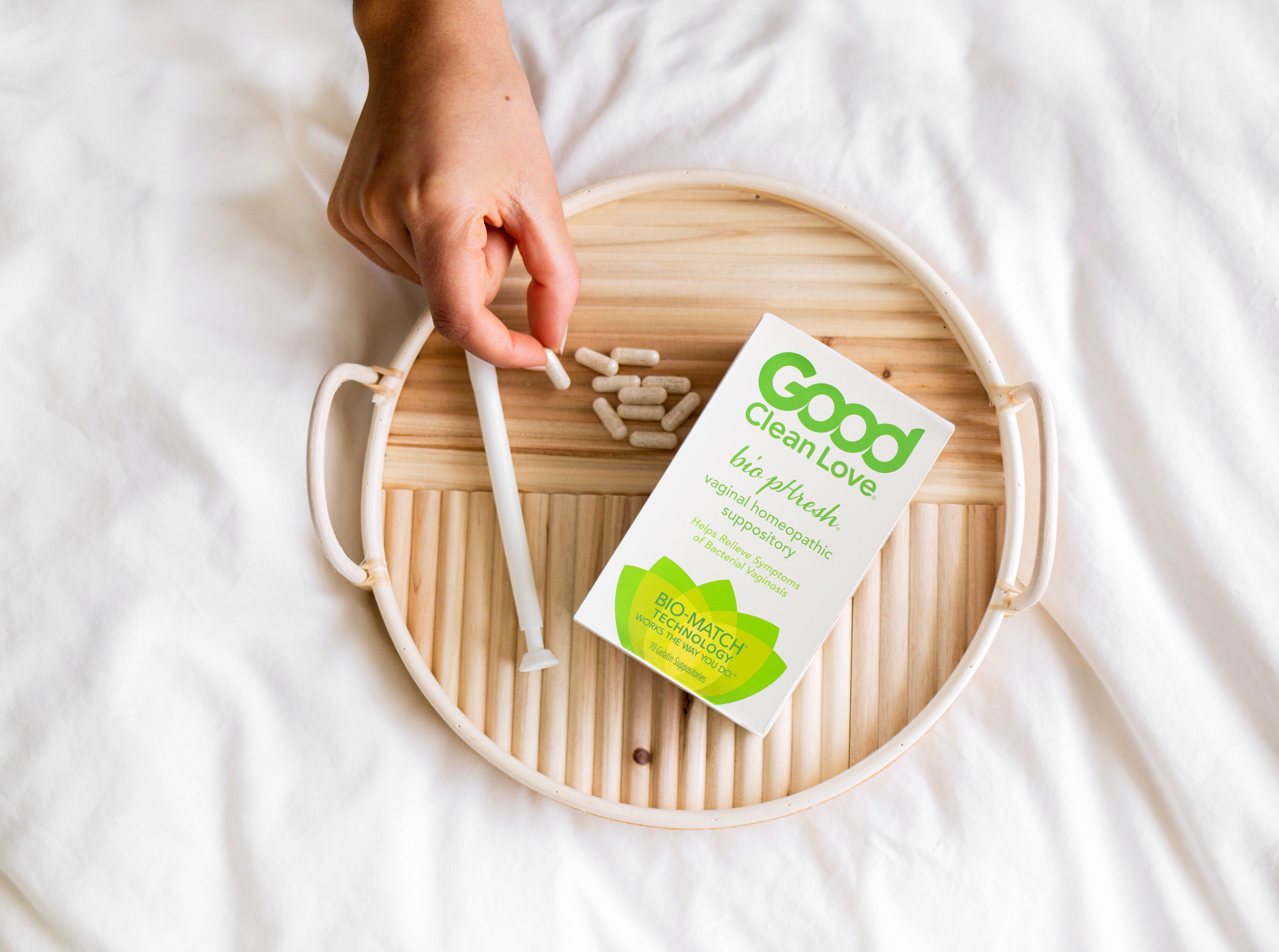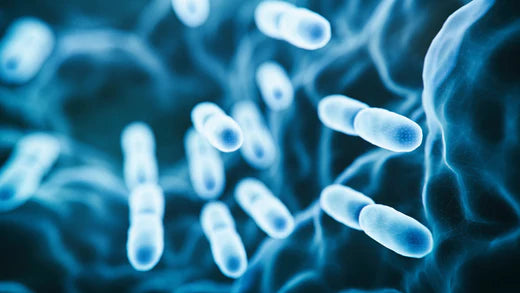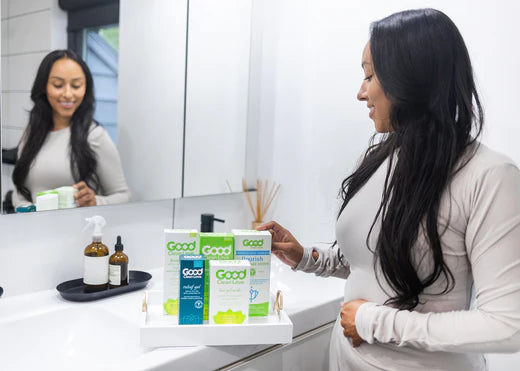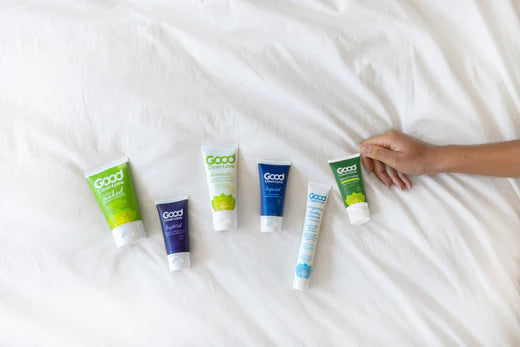Breastfeeding is part two of the miracle of pregnancy: Not only can your body make another person, it can also make food for that person. For some new mothers, though, breastfeeding comes with vaginal dryness that can be itchy or even painful – and the condition can be especially severe for women who are exclusively breastfeeding (EBF). Fortunately, there are good, inexpensive treatments for EBF-related dryness, with no serious side effects. Let’s look at what EBF means, why it can lead to dryness, and some potential treatments.
What is EBF?
EBF stands for “exclusively breastfeeding,” which generally means your baby doesn’t eat or drink anything except breast milk – no water, no formula.
Most experts agree that EBF is the healthiest choice for babies. Breast milk has the perfect nutritional balance, and is also key to building new immune systems. In fact, babies who are not breastfed, or only partially breastfed, have significantly higher rates of fever, diarrhea, and acute respiratory infection, (1) and higher chances of dying from any cause, especially infections. (2)
Both the World Health Organization (3) and the American Academy of Pediatrics (4) recommend EBF for the first six months of a baby’s life, followed by a mix of breastfeeding and other foods. Earlier recommendations called for shorter periods of EBF, but more recent evidence shows that continuing EBF for the full six months can protect babies from gastrointestinal infections (5) as well as helping them crawl and walk sooner. (6) Despite a few claims to the contrary, there does not seem to be any real benefit to introducing other foods before six months. (7)
EBF and the New Mother
Only about half of American babies are exclusively breastfed for three months, and only about a quarter are EBF through six months. (8) Why so few? Some new mothers may not know about the benefits of breastfeeding, while others do know but aren’t able to breastfeed for a variety of reasons. And let’s face it: Breastfeeding can be hard. It takes time and energy, two things a new mom seldom has enough of.

Furthermore, as simple and natural as breastfeeding is, it does mean some temporary changes in a mother’s body, especially in hormone levels. Although breastfeeding is perfectly safe in the long term, there can be uncomfortable side effects in the short term. In particular, many EBF mothers experience severe vaginal dryness, often for the first time in their lives.
Postpartum vaginal dryness is very common. In one study, 43% of women reported lack of vaginal lubrication six months after giving birth for the first time – and breastfeeding raised that number even higher. (9) What is the connection?
The Link Between EBF and Vaginal Dryness
The story can get complicated, (10) but let’s look at a simplified version. There are two key players: estrogen and prolactin. Estrogen is a hormone that maintains a comfortable level of moisture in your vagina; prolactin is a protein that gives you milk to feed your baby. The link? Estrogen counteracts prolactin. If your estrogen is high, your prolactin can also be high and you still won’t produce much milk. In fact, your body starts producing prolactin while you are still pregnant, but high estrogen levels prevent you from producing milk during that time. After you have your baby, your estrogen levels drop, the prolactin kicks in, and your milk starts flowing.
Unfortunately, the low estrogen levels can also make your vagina uncomfortably, even painfully dry. Whether this happens to you, and how serious it is, largely depends on your personal chemistry. For some, the dryness becomes so painful that it keeps them from the things they need to do; for others, the constant itching is a maddening distraction; others feel fine overall, but find that dryness interferes with intimacy, putting a strain on their relationship. And all of that is on top of the other changes that come with a new baby!
If you do have postpartum dryness, whether EBF-related or not, there’s good news and … good news. First, the condition isn’t permanent: Once you stop breastfeeding, your estrogen levels will gradually return to normal, and so will your moisture levels. The other good news is that there are simple treatments for vaginal dryness while you are EBF, and they don’t cost a fortune or have serious side effects.
Treatments for Postpartum Vaginal Dryness
Remember that although vaginal dryness can be a serious problem, it is also a normal part of the postpartum hormone balance. It does not mean anything else is wrong with you. If you find a treatment that makes the dryness feel better, then you’ve found a successful treatment – nothing else to worry about, end of story. Once you stop breastfeeding, your hormones should gradually return to normal and you can adjust or eliminate your treatment.
What To Avoid
The first step is to make sure you aren’t inadvertently making your dryness worse. Many products marketed for feminine health and hygiene can actually dry out the vagina, as well as disrupt the delicate pH balance and vaginal microbiome that help regulate moisture and protect you from infections.
- Avoid douching, which can change your microbiome and increase your risk for a long list of infections, (11) as well as dry out and irritate your vagina. (12)
- Avoid using artificial fragrance in your vagina, including scented lotions and soaps.
- Make sure any products you use in your vagina are pH balanced and iso-osmotic, meaning that they match a healthy vaginal acidity and salt balance.
Lubricants for Intercourse
Some women have relatively mild postpartum dryness that is only a problem when they want to have sex. Many health care providers suggest that new moms wait to have sex until four to six weeks after delivery, but after that time period, there is nothing wrong with having sex. It doesn’t mean you are selfish or neglecting the baby. In fact, sex can be a key component of self-care during that time, as well as a way to get closer to your partner and make sure everyone in the family feels loved.
On the other hand, some couples find that they’re too tired or too stressed, or the desire just isn’t there; that’s fine too, but keep communicating actively with each other, and don’t shy away from your desire when it returns.

If dryness is a problem during sex, the solution may be as simple as a vaginal lubricant. Maybe you already have a favorite lube, but if not, you may find yourself lube shopping for the first time in your life. There’s nothing to be afraid of! Choose a healthy, organic lube and apply it as needed, until sex feels good again. Don’t worry about using too much; you may find you need more than you expect.
Vaginal Moisturizers
For many women, postpartum vaginal dryness is a problem all the time, not just during sex. If this happens to you, consider making a vaginal moisturizer part of your daily routine. A vaginal moisturizer is the equivalent of hand lotion for your vagina – not really medicine, just something to make the dry parts less dry.
Since your vagina is more sensitive than your hands, you should use extra care in choosing the right vaginal moisturizer; we recommend a natural moisturizer that matches that natural pH and salt balance of the vagina.
Estrogen
If a moisturizer isn’t enough to solve your vaginal dryness, talk to your health care provider about prescription estrogen. This might come in either a cream or a capsule that you use like a suppository; whatever form it takes, it will be something that you apply directly to the vagina, not something you take orally. (13) Estrogen is not available over the counter, so you will need a prescription.
Estrogen can be very effective for postpartum dryness, and even women who are EBF should see quick relief with no significant side effects. After you stop breastfeeding and your own hormone levels return to normal, you can stop using your estrogen cream.
Estrogen Cream and Your Milk Supply
Some women worry that using estrogen for vaginal dryness will affect their milk supply and they won’t have enough milk to EBF. This is a misconception, but an understandable one. After all, milk production is related to estrogen, and hormone-based birth control pills do dry up your milk supply. (14) The local estrogen that you get for vaginal dryness is a different story though: Applying it to the vagina rather than taking it orally means it gets absorbed differently by your body, so that most of it goes directly to the vagina and does not enter your bloodstream. (13) It should not have any impact on your milk supply.
It is natural to think about your milk supply when you’re EBF, but some of the things that might worry you – your breasts feeling softer, your baby needing to feed more often – are actually normal; you are doing fine, and your baby is still getting enough milk. (15) Since breastfeeding signals your body to produce more milk, the best thing you can do to keep your milk flowing is to keep feeding your baby!
Other Causes of Vaginal Dryness
We’ve been focusing on postpartum dryness for EBF mothers, but anything that reduces your estrogen levels can cause vaginal dryness. That includes taking birth control, having your ovaries removed, getting chemotherapy or radiation therapy for cancer, and in particular, menopause.
In fact, a lot of information about vaginal dryness comes from studies of postmenopausal women. If your dryness is related to EBF, it isn’t exactly the same as postmenopausal dryness, but the underlying mechanism is the same: low estrogen. Much of the advice you read for postmenopausal vaginal dryness also applies to postpartum dryness.
Since all women eventually go through menopause, dryness is a very widespread health problem – but since it involves the vagina, it’s one that nobody seems to talk about. Be assured that if your vagina is dry and painful, it is a legitimate problem. It is not something you need to bear in silence. You deserve to live without that pain – after menopause, before menopause, while breastfeeding, while not breastfeeding, and at every other time in your life. If you are in pain, talk to your health care professional and expect them to listen.
Conclusion
Exclusively breastfeeding is a great choice for your baby’s health, especially for the first six months. There are no long-term health risks to you, the mother, but the change in hormone balance can mean your vagina becomes dry, itchy, and even painful. This isn’t a permanent change; once you stop breastfeeding, your hormones will gradually return to normal and the dryness will go away.
In the meantime, there are several safe and effective treatments available. If dryness is mainly a problem when you want to have sex, try a safe, natural personal lubricant – and don’t be afraid to use a lot of it! If the dryness is a problem in your day-to-day life, try making an over-the-counter vaginal moisturizer part of your daily personal routine.
If a moisturizer doesn’t solve the problem, or if you ever have the feeling that something bigger is wrong, talk to your health care provider. They may prescribe an estrogen cream that you apply to your vagina. Don’t worry about the estrogen drying up your milk supply; the creams that are prescribed for dryness generally don’t affect your milk.
Whatever you do, don’t panic and don’t give up. Your baby may be the star of the show in these early months, but your health and comfort are important too. Just because vaginal dryness while EBF is normal doesn’t mean you have to grin and bear it; find a treatment that works for you, and enjoy this time with your growing family!

